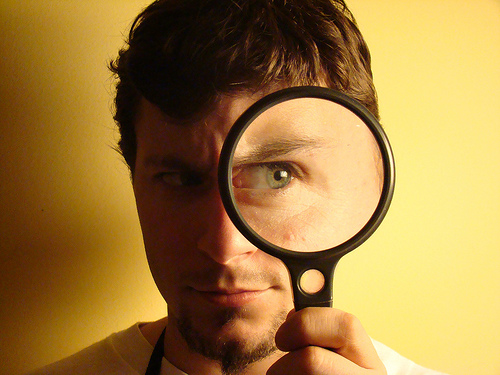
We all go through life liking some people better than others. And I’m sure some of those “others” are people we find much contempt for, maybe we even downright hate them. I know I’ve experienced my fair share of malevolence toward people I’ve met, and sometimes for good reason. However, I suspect that forgiveness plays an important role in letting go of this ill will, and by the end of the day I try to wish the very best for everyone.
I find that one of the most effective ways in alleviating my ill will is to try and find the good in everyone. While this can sometimes be a difficult task, I’ve also found it to be incredibly rewarding – not just as a way of building compassion or forgiveness – but also as an educational tool, and as a way to facilitate positive change in others.
Awhile back I made an uncompromising assumption that everyone has something of value to offer the world. My reasoning was that much of our knowledge is limited to personal experience, and since everyone has a different range of experiences and subjective viewpoints, then everyone presumably has a piece of the puzzle.
In practice, this belief has made me a much better learner, because I go into every interaction with the intent to be interested in everyone and walk away learning something new. I seriously don’t care if the person is 2 years old and can barely speak, or if the person is 100 years old and far removed from my generation, everyone without exception can teach me something about life. And by making it my personal duty to try and identify this value in others, I believe that I’ve simultaneously become a better person.
But identifying value in others does far more than just serve my own self-interests. When you engage with someone with the intent to discover their strengths, learn, and understand, the person usually becomes more aware of their own positive attributes. A great friend of mine once told me how almost everyone makes her feel stupid. However, she said that even though I was one of the “smartest people” she knew, I somehow didn’t make her feel dumb by comparison. I immediately knew why I make her feel like this. It is because I truly believe she is a genius in her own way. Sure, I like to think of myself as a smart person too, but I know that there are some aspects of life where she is infinitely more capable and wiser than I am. When I believe there is good in others, it causes me to treat people differently than I otherwise would. My actions are more likely to reinforce self-worth in others, and my belief helps create the fact like a self-fulfilling prophecy
In summary, finding the good in others is a beneficial activity for both you and the other person. It is a way of identifying other people’s strengths, cultivating them, and encouraging self-growth and improvement. I challenge you to be more active in discovering good things about other people during your daily interactions. Go in with the intention to explore, learn, and really empathize. It’s likely that you’ll still meet people who irritate you or seem to offer nothing, but I encourage you to engage them as positively as possible, despite previous experiences and judgments. If you do this effectively, you will help to inspire and motivate that person to become better, you will learn something valuable, and also increase the potential of having a great long-term relationship.
Enter your email to stay updated on new articles in self improvement:
